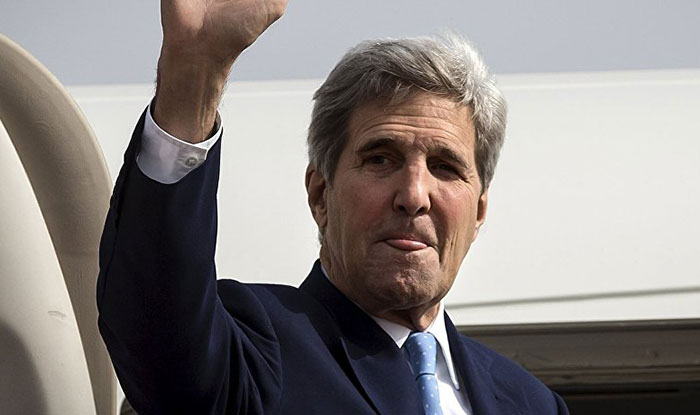Media Report

- The Wall Street Journal reports: "U.S. Secretary of State John Kerry is expected to press China to do more to address North Korea's recent nuclear test and try to calm increasing tensions stemming from maritime disputes in the South China Sea....The U.S. wants Beijing to support tough international sanctions and to take independent steps to press Pyongyang to change course....China has said that it is the U.S. that has made things worse with North Korea and that China alone can't persuade North Korea to abandon its nuclear program....Washington is considering a range of unilateral responses to North Korea's nuclear test, including sanctions. So-called secondary sanctions target third-party countries and would affect mainly China because it is North Korea's main trading partner."
- The New York Times reports: "Sanctions against Iran failed to halt the construction of the complex, a steel mill that went into operation in September and now churns out ingots and billets. The sanctions also did not stop Sheng Kuan Li, a Chinese businessman, from pouring $200 million into the project. Mr. Li is one of many Chinese investors who in recent years worked around the sanctions imposed on Iran by the United States and other world powers over Tehran's nuclear program....On Saturday, [Iran and China] agreed to increase trade to $600 billion in the coming decade."
- Reuters reports: "Chinese shares began the week on a firmer note on Monday, extending gains from Friday after a rally in battered oil prices sparked a rise in Asian equities....After surging 10 percent on Friday and helping Wall Street rise over 2 percent, oil held gains during the Asian day on Monday, though they slipped back after Chinese markets closed....Chastened by the market's bearish reaction to an early January depreciation in the yuan, the People's Bank of China (PBOC) has kept the yuan's daily midpoint fixing CNY=SAEC little changed for the past two weeks."
Calendar
- 2016-01-24 Kerry to Press China Over North Korea, Urge ASEAN Unity Over South China Sea
- 2016-01-22 Falling Pollution from China Could Hasten Peak Carbon
- 2016-01-21 Survey of U.S. companies in China finds that not all's well
- 2016-01-20 Capital Flight from China Worse Than Thought
- 2016-01-19 Xi Asserts China's Middle East Role as Iran Sanctions Lifted
- 2016-01-18 China GDP Growth Slowest Since 1990
- 2016-01-17 China's economic turmoil sends ripples of anxiety across G20
- 2016-01-15 Ousted Communist Official’s Brother Is Living in United States, China Says
- 2016-01-14 China Stocks Rebound From Lowest Since Rout as Smallcaps Rally
- 2016-01-13 South Korea Presses China for More Aggressive Action on the North
News
- The New York Times China Deepens Its Footprint in Iran After Lifting of Sanctions
- Reuters China shares end modestly higher before oil slips
- The Wall Street Journal John Kerry in Asia to Press China on North Korea Nuclear Test, South China Sea
- The Washington Post Laos assures US it will help counter Chinese assertiveness
- The Wall Street Journal Europe-China Deals Get More U.S. Scrutiny
- Bloomberg Business China Capital Outflows Rise to Estimated $1 Trillion in 2015
- The New York Times Report: 2 Chinese Killed in Laos Suspected Bombing
- Financial Times China-made '$5 insanity' drug goes global
- The New York Times Cold Snap Hits East Asia, Blamed for More Than 65 Deaths
Commentary
- Bloomberg View China's Migrants Go Home -- And Stay There
- Forbes In China, A Tug Of War Between Local States And Beijing To Curb Organized Crime
- The New York Times China Considers Larger Role in Afghanistan Peace Process
- The Wall Street Journal: China Real Time The Drivers of Growth in China's New Normal
- Foreign Affairs China's Middle East Tour, Beijing's Post-Sanctions Ambitions
- Forbes China's Nearly 700 Million Internet Users Are Hot For Online Finance
- The Wall Street Journal: China Real Time On Chinese TV, Confessions Are All the Rage
